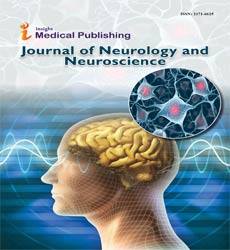Abstract
Role of Stress, Immune System and Well-being in Patients with Alzheimer's Disease
Alzheimer’s disease(AD) is a progressive and neurodegenerative disorder that induces neuropsychiatric symptoms, disability, caregiver burden, and premature death in patients who suffer from it. It represents the most prevalent cause of dementia in our society and its incidence rates exponentially increase with age. Currently, this disorder does not have any cure and it is essential to know all the variables and factors involved in the development of this disorder. Among these factors, there are different categories such as biological and environmental aspects. It seems that the immune system (IS) and the stress system are some of them and the knowledge about their role in this disorder is an important question in this area. Moreover, it has been demonstrated that both systems are related and this relationship can also be influenced by the emotional system. In fact, the levels of the IS biomarker (immunoglobulin A) and the stress system (cortisol) are different in people with and without AD and IgA is higher in patients with high wellbeing. Therefore, the new therapies in AD should be focused on the influence of these systems and on postulating new alternative perspectives like non-pharmacological therapies.
All this is essential for the study of AD in order to improve the quality of life in these patients, as well as knowing all the variables involved, so as to generate new therapeutic targets in AD.
Author(s):
Garcia-Pardo MP, Julian Rochina M and De La Rubia JE
Abstract | Full-Text | PDF
Share this

Abstracted/Indexed in
- Google Scholar
- Open J Gate
- Genamics JournalSeek
- The Global Impact Factor (GIF)
- China National Knowledge Infrastructure (CNKI)
- Directory of Research Journal Indexing (DRJI)
- WorldCat
- Proquest Summons
- Scientific Journal Impact Factor
- Secret Search Engine Labs
- Euro Pub
Open Access Journals
- Aquaculture & Veterinary Science
- Chemistry & Chemical Sciences
- Clinical Sciences
- Engineering
- General Science
- Genetics & Molecular Biology
- Health Care & Nursing
- Immunology & Microbiology
- Materials Science
- Mathematics & Physics
- Medical Sciences
- Neurology & Psychiatry
- Oncology & Cancer Science
- Pharmaceutical Sciences

